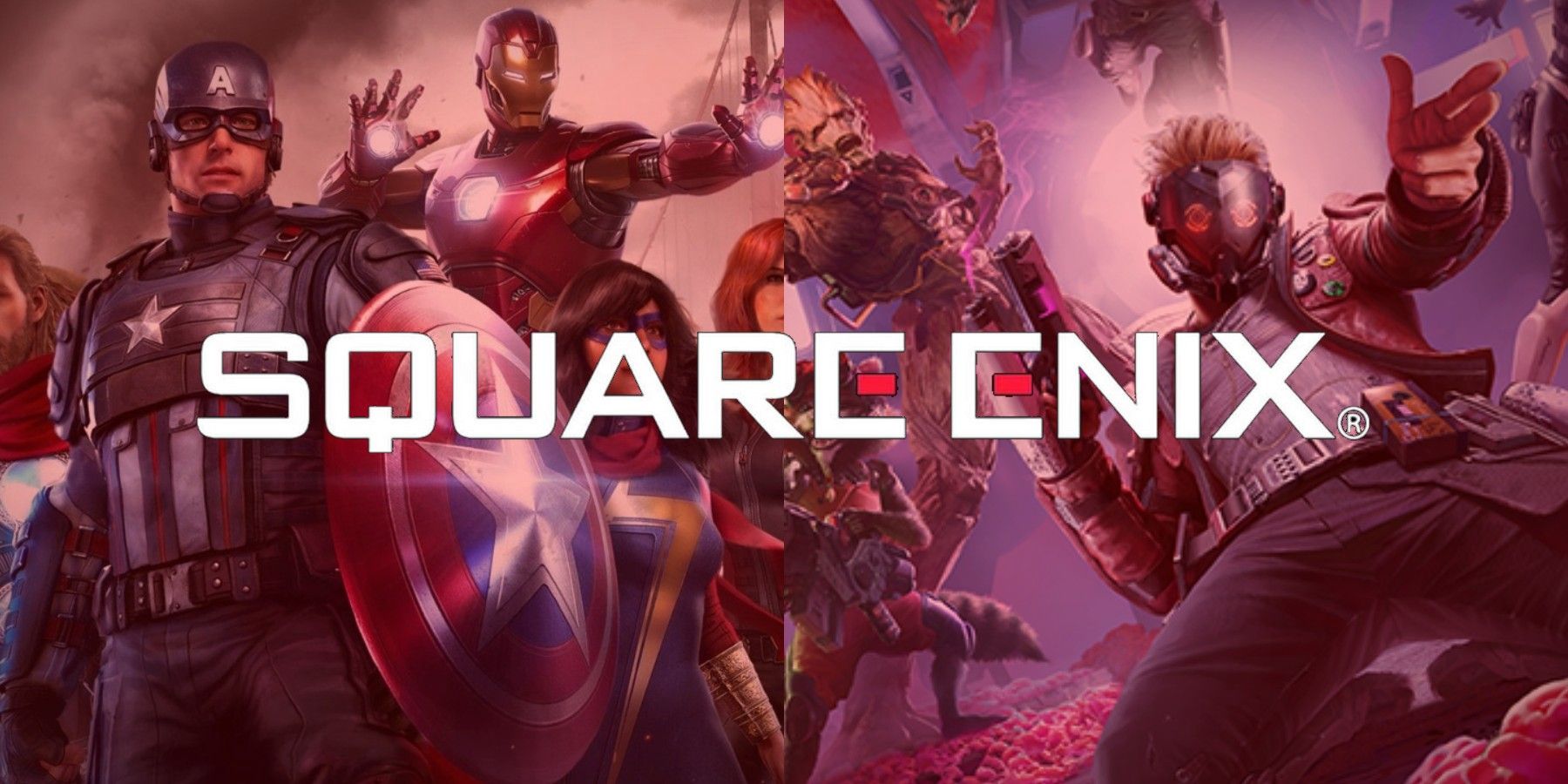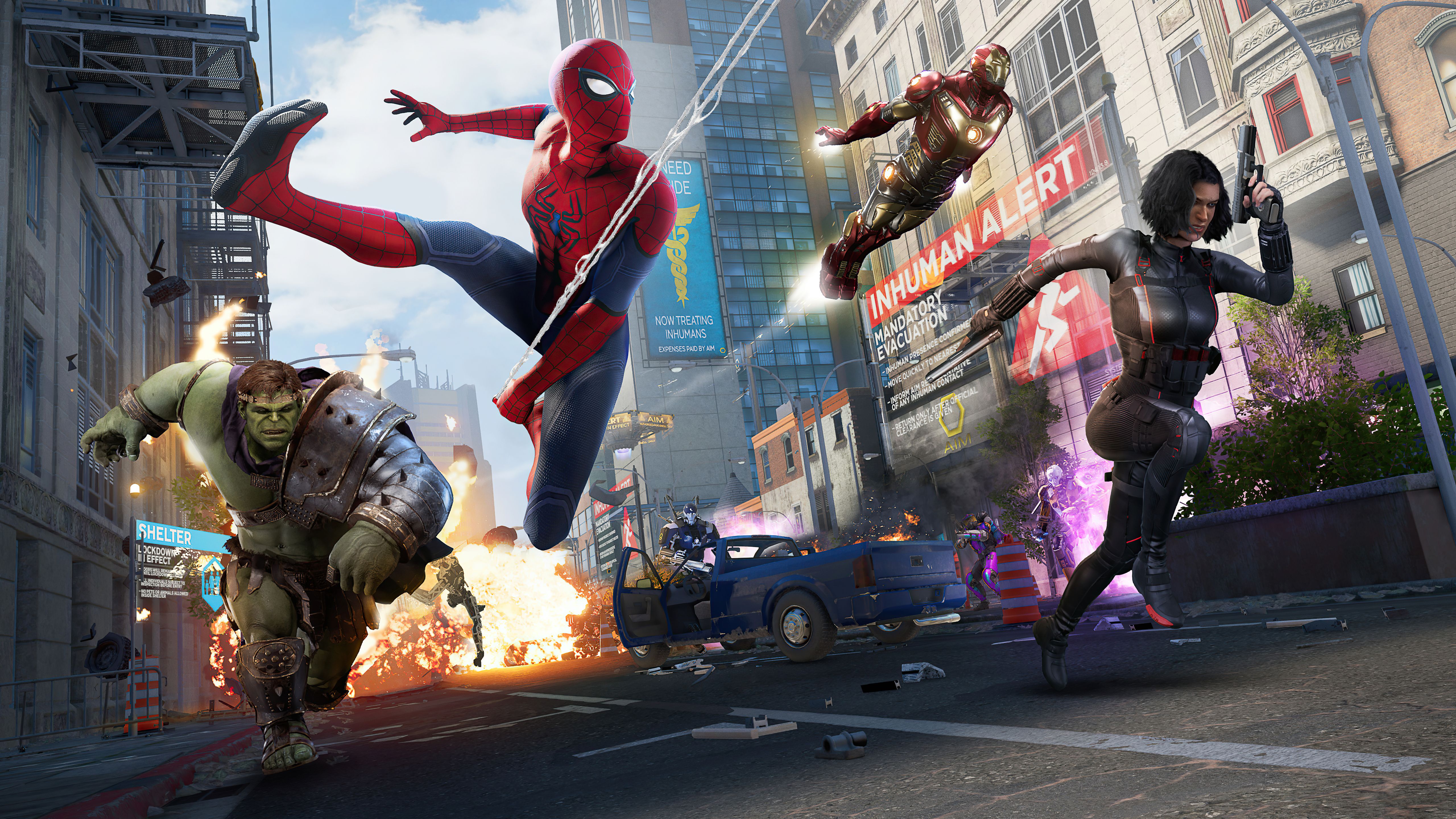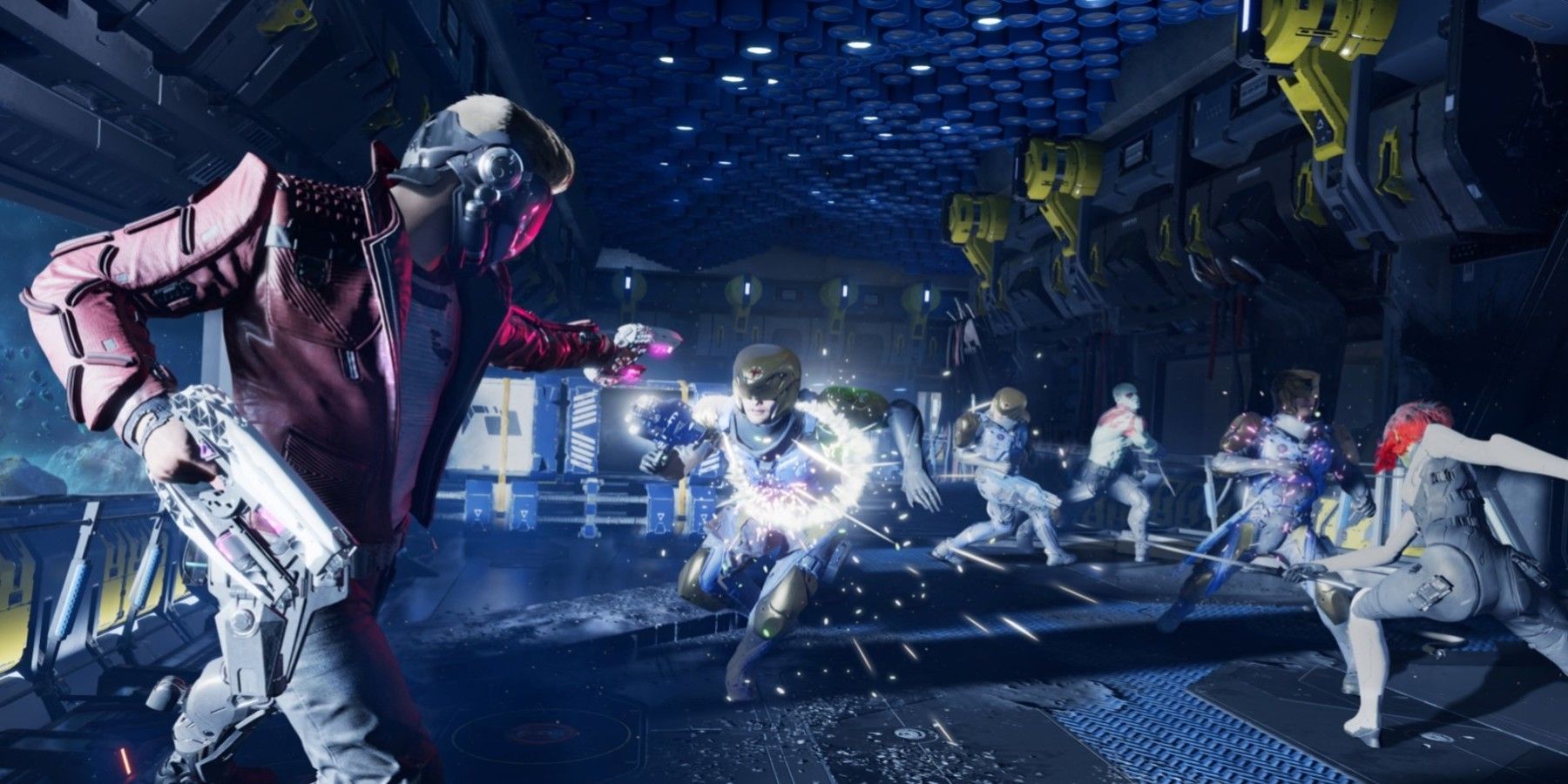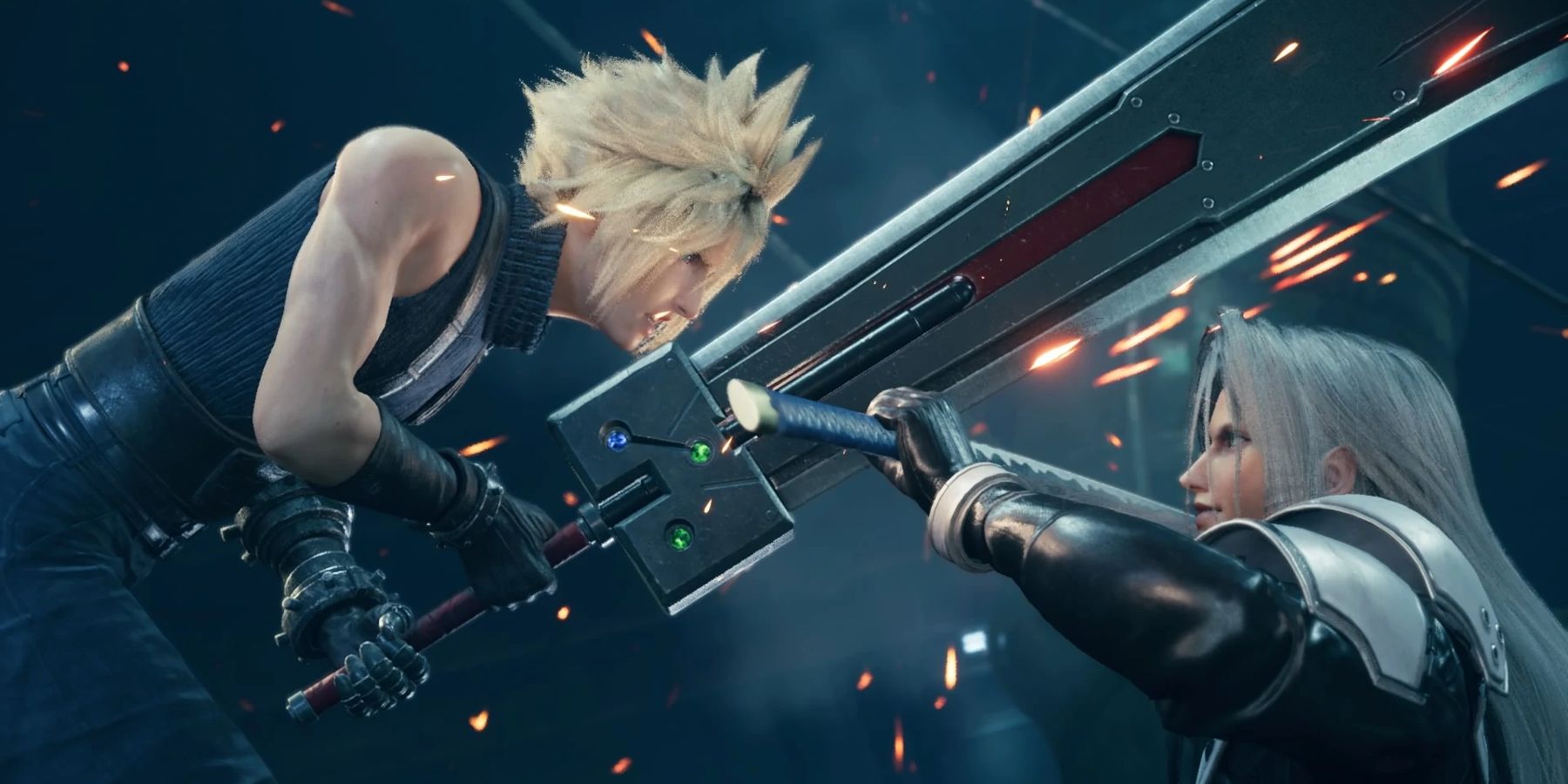For anyone with even a passing interest in movies, TV shows, or games, it’s been nearly impossible to avoid Marvel-themed content over the last decade or so. Thanks in-part to the sheer power of Disney, the comic book giant and its instantly recognizable cast of superheroes and villains has all-but conquered entertainment. Despite frequent success stories, though, not every Marvel-labeled endeavor excels. This is the case with Square Enix and its multi-tiered project that spawned games like Marvel’s Avengers.
When Square Enix and Marvel announced their collaboration back in 2017, there was a sense of expectation surrounding the pair’s multi-game partnership. Having played a hand in the creation of the recent Tomb Raider and Deus Ex games, all the ingredients were present for the former to excel with the latter’s cast of characters. Since the release of Crystal Dynamics’ Marvel’s Avengers and Eidos-Montreal’s Guardians of the Galaxy adaptation, though, the situation has shifted dramatically; so much so that the initiative is seemingly all-but dead.
Marvel’s Avengers’ Shortcomings
On paper at least, the collaborative deal that Square Enix and Marvel penned in early 2017 should have been a match made in heaven. Everything from the brief Avengers-themed teaser that was released to commemorate the news to the restructuring that happened behind the scenes within the publisher’s western studios suggested that every party involved was determined to create something special. The fact that the initiative was positioned as a multi-year multi-game deal and given the evocative The Avenger’s Project moniker underlines this even more.
Fast-forward to the present, though, and the situation that Square Enix’s Avengers Project is now seemingly in is a far cry from that sense of optimism. To get a clear picture as to why the initiative has fizzled out, it’s important to look at the shortcomings of the two games that were eventually created because of the deal. Having been in development for over three years, it’s fair to say that the game that bore the project’s name in particular is one of the key reasons why things fell apart,\.
From the moment that Crystal Dynamics’ Marvel’s Avengers was fully unveiled to the world, there was a sense online that the games-as-a-service endeavor wasn’t what comic book fans were really looking for. Instead of a tight single-player experience that explored Marvel’s most popular band of heroes, players were offered a multiplayer-centric experience that failed to fully capture the magic of the IP or the promise of the project itself. Since then, successive attempts to breathe new-life into the game have come and gone without any significant long-term success.
Even though it’s worth pointing out that Marvel’s Avengers has its own passionate player-base, more generally speaking Crystal Dynamics’ game has been both a critical and commercial flop. It’s estimated for example that, as of May 2022, Square Enix has sunk upwards of $200 million into both of its Marvel games combined. Considering how it was positioned as The Avengers Project’s flagship title, it’s easy to see why Square Enix has chosen to dramatically pump the brakes when it comes to the initiative.
Guardians of the Galaxy's Shortcomings
Having re-organized itself internally to create multiple superhero-themed games, pausing its own established IPs in the process, any setback Square Enix experienced along its journey was always going to make it re-evaluate its position. Despite the hiccups that Marvel’s Avengers experienced, though, it should be noted that the publisher’s current stance wasn’t cemented overnight. That’s because, after several rumors and insider leaks, Eidos-Montreal’s highly anticipated Marvel’s Guardians of the Galaxy was unveiled to the public in 2021.
Thanks to the success of recent comic book runs and Hollywood’s MCU movie adaptations, the Guardians of the Galaxy have rightfully become a significant part of Marvel’s multimedia empire over the last few years. It’s for this reason that it can be argued a single-player focused interpretation of the group, which places an emphasis on comedy and heartfelt storytelling, should have been able to resurrect Square Enix’s stalled Avengers Project. In reality, Eidos-Montreal’s game has arguably sealed the fate of the initiative and the studios that were caught up in it.
That’s not to say that Marvel’s Guardians of the Galaxy is a bad game by any stretch of the imagination. On the contrary, Eidos-Montreal nailed a lot of what makes the group so special. Aside from a few occasionally repetitive gameplay mechanics, the story, humor, and world-building found within the game is generally on point. When it comes to critical reception, the second game within The Avengers Project excelled far beyond what Marvel’s Avengers was able to achieve.
Despite reaching respectable levels of critical acclaim though, Marvel’s Guardians of the Galaxy wasn’t the runaway success that Eidos-Montreal arguably deserved. When it comes to commercial returns, the game has failed to match the expectation that were placed on it by Square Enix. During a statement that mirrored a lot of the publisher’s other assessments of its one-time western studios, Square Enix reported that it was disappointed with the sales figures for the game. One of the biggest reasons why The Avengers Project has fizzled out, then, is the simple fact that the publisher behind it overestimated the amount of return it would get back.
Square Enix’s Future Plans
As it stands right now, it’s hard to imagine Square Enix publishing more Marvel projects anytime soon. While the perceived shortcomings of its last two stabs at the comic book publisher’s back catalog have pushed it toward that reality, there’s one final reason that’s arguably become the biggest factor. Only a few weeks ago, Square Enix made the shock announcement that it plans on selling a large chunk of its western infrastructure to the Embracer Group, during the second half of 2022.
The agreement that’s set to net Square Enix roughly $300 million will see ownership of Crystal Dynamics, Eidos-Montreal, and a catalog of each studio’s IPs transfer over to the Embracer Group. While it remains to be seen if the new owner can strike a deal with Marvel’s parent company Disney, it stands to reason that the deal marks the end of Square Enix’s own involvement in the comic book adaptation business. The fact that the deal is valued only slightly above the amount of money it sunk into its Avengers Project underlines how eager it is to move on.
It’s worth keeping in mind from a practical perspective, with Square Enix’s re-purposed Marvel-themed studios now heading off to new shores, there’s less scope for the publisher to green-light further projects. With a lineup filled with games like Final Fantasy 7 Rebirth, Final Fantasy 16, and Forspoken, the publisher appears to be keen to focus on its roots once more. Marvel fans have little to be fearful of, though. With Insomniac Games having already become a proven entity in the field and other ventures like Marvel’s Midnight Suns looking promising, there’s still going to be plenty of comic book adaptations on the horizon.
Marvel’s Avengers is available now on PC, PS4, PS5, Stadia, Xbox One, and Xbox Series X.




